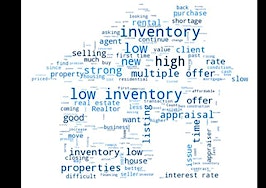- After TRID was implemented in October 2015, agents and brokers no longer had easy access to the Closing Disclosure (CD), a loan document that replaced the HUD-1 Settlement Statement.
- The CFPB modified TRID rules to clarify that sharing a CD with agents and brokers is "usual, accepted and appropriate."
The biggest headache for real estate agents surrounding the TILA-RESPA Integrated Disclosures rules, also known as TRID, has — hopefully — disappeared.
TRID, a set of rules administered by the Consumer Financial Protection Bureau (CFPB), integrated the Truth in Lending Act and Real Estate Settlement Procedures Act — the TILA-RESPA part of the title — and was implemented in October 2015. TRID (which is also colloquially known as Know Before You Owe, or KBYO) replaced the HUD-1 Settlement Statement with a new document, the Closing Disclosure (CD) … and this was the genesis of the problem for real estate agents and brokers: Although they’d previously had access to the HUD-1 document, many real estate professionals were encountering difficulty when they tried to get their clients’ CDs.
But last week, the CFPB finalized updates to the 560-page TRID rules, including an update about privacy and sharing of information that should make it easier for agents and brokers to access the CD.
“The Bureau understands that it is usual, accepted, and appropriate for creditors and settlement agents to provide a Closing Disclosure to consumers, sellers, and their real estate brokers or other agents,” the CFPB said in its update.
Why would a real estate agent need to see the Closing Disclosure?
As the National Association of Realtors (NAR) pointed out in a letter last October, access to the HUD-1 allowed agents and brokers “to provide consumers with beneficial advice and useful resources.”
That can include finding and fixing errors in the loan documents — errors that might be more common than the CFPB anticipated.
“In a recent NAR survey, approximately 46 percent of Realtors reported difficulties with obtaining the CD,” NAR wrote in the letter. “When access was permitted, more than half identified errors within the document, including missing concessions, and incorrect names, addresses, fees, commissions, and taxes. Thus, lenders’ refusal to share the CD with real estate professionals — trusted advisors who frequently reviewed the HUD-1 with buyers and sellers — may adversely impact consumer transactions, including delaying the closing, depending on when such errors are discovered.”
NAR was vocal in its support of the rule change to give access to the CD, which was proposed last July.
“Consumers depend on their real estate agent to help guide them from pre-approval to closing, but that job is significantly harder when an agent is denied access to the closing disclosure,” said NAR President William E. Brown in a statement. “The CFPB has again made clear that lenders may share disclosures with third parties, including real estate agents. This was common practice for years in advance of Know Before You Owe, and Realtors are eager to see that cooperative atmosphere take hold once again.”












